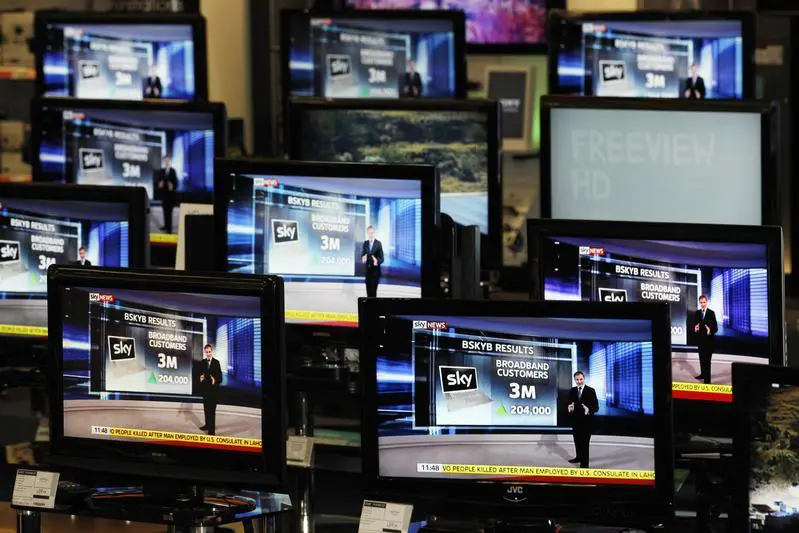PHOTO
The developments in the technology sector and the increased number of paid TV channels in the UAE have created a hotbed for illegal activities which may lead to intellectual property ("IP") violations.
The UAE is considered as one of few countries in the region which has implemented specific legislation to penalise such violations.
Infringers recently have developed decoders which are programmed to be connected with external servers out of the UAE. Those external servers are used to record and store specific TV programmes/shows and upon connecting the decoders with the internet, external servers are allowed to share those TV programmes/shows with the decoders in the UAE and broadcast the content to the decoders via the internet. The classic form of infringement occurs when traders import TV decoders from neighbouring countries and start receiving that country's TV satellite signal and ignoring the exclusive IP and distribution rights in the UAE. The violators here benefit from the difference in the subscription fees between different countries ignoring the exclusive rights of the local service providers.
Dealing with torrent websites may also constitute a violation to IP rights and the original uploader of the content can be traced in the UAE. In a case handled in Ajman, the police were able to track down the original uploader of the torrents, who was carrying out the activities from his home.
Local media companies are the main victims of these types of IP infringement. As such, media companies are carefully monitoring the local market in order to apprehend the infringers. Media companies are also working side by side with different enforcement authorities in the UAE such as the Department of the Economic Development ("DED") and the Criminal Investigation Department ("CID"), in order to locate and bring to justice the operators who are illegally taking part in such activities. With a CID raid operation, time is of essence since the infringers have the ability to deactivate the decoders and destroy the incriminating evidence, often by means of associates with access to the system which activates the decoders. Maintaining and preserving the evidence in such cases is the biggest challenge, and it is an essential step to engage the CID lab during such operations. To this end, the CID lab is vigilant in collecting the required evidence from the site of violation or the CID may be primed to examine the decoders immediately after raiding the site of the violation.
Infringers face severe punishments in the UAE, which may lead to deportation for expats. In a recent case, the Dubai Court sentenced an individual for distributing/promoting unauthorised decoders which use internet protocol television ("IPTV"). The Court issued its judgment based on Article 38 of the UAE Federal Law of Copyright, Law No. 7 of 2002 and its amendments, which states the following:
Article 38:
Without prejudice to any severer punishment stipulated under any other law, any person, who performs any of the following acts without prior written consent of the author or neighbouring right holder, shall be punished by detention for not less than three months and payment of fine not less than AED 50,000 and not more than AED 500,000:
Unlawful producing or importing for the purpose of selling, renting out, or dealing in any devices, instrument, or apparatus designed or prepared for the purpose of fraud against any technique used by the author or right holder to broadcast, offer for public, administer, or manage the copyrighted work or maintain the qualities of the copyrighted work)
In addition, Article 121 of the UAE Criminal Law, Law No. 3 of 1987 and its amendments, states:
Article 121:
If a foreigner is sentenced to a custodial punishment for a felony or a misdemeanour, the Court may order in its sentence that he/she be deported from the state.
In a similar case, the Abu Dhabi Federal Court sentenced an infringer for selling decoders which allowed the broadcasting of exclusive TV channels. The infringer was further deported based on Articles 34 and 42 of the Federal Decree by Law No. 5 of 2012 concerning Combating Cyber Crimes, which state:
Article 34:
Any person who benefited or unlawfully facilitated to third party the use of communication services or audio or visual transmission channels through the Information Network or the Information Technology Instrument shall be punished by imprisonment for a period not less than one year and a fine not less than (AED 250.000) and not exceeding (AED 1.000.000) or by any of these punishments.
Article 42:
The Court shall adjudge to deport the foreigner convicted for committing any of the crimes provided for in this Decree by Law after executing the prescribed punishment.
In conclusion, UAE legislation provides a wide range of legal actions against copyright violators especially for those who use the internet as the means to commit the crime. The punishment of such acts can vary between a fine, imprisonment, closing the operations, and possible deportation of expats.
© Al Tamimi & Company 2016





















